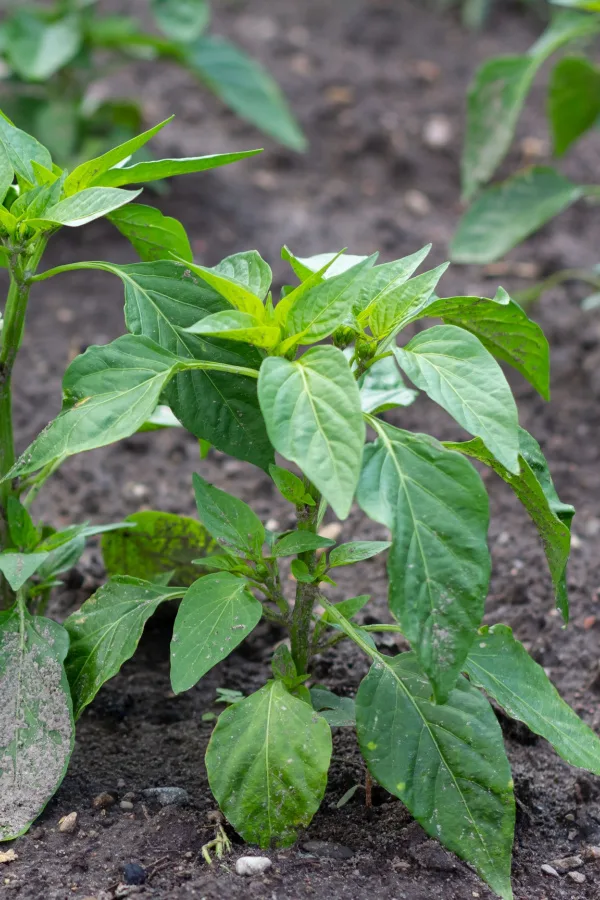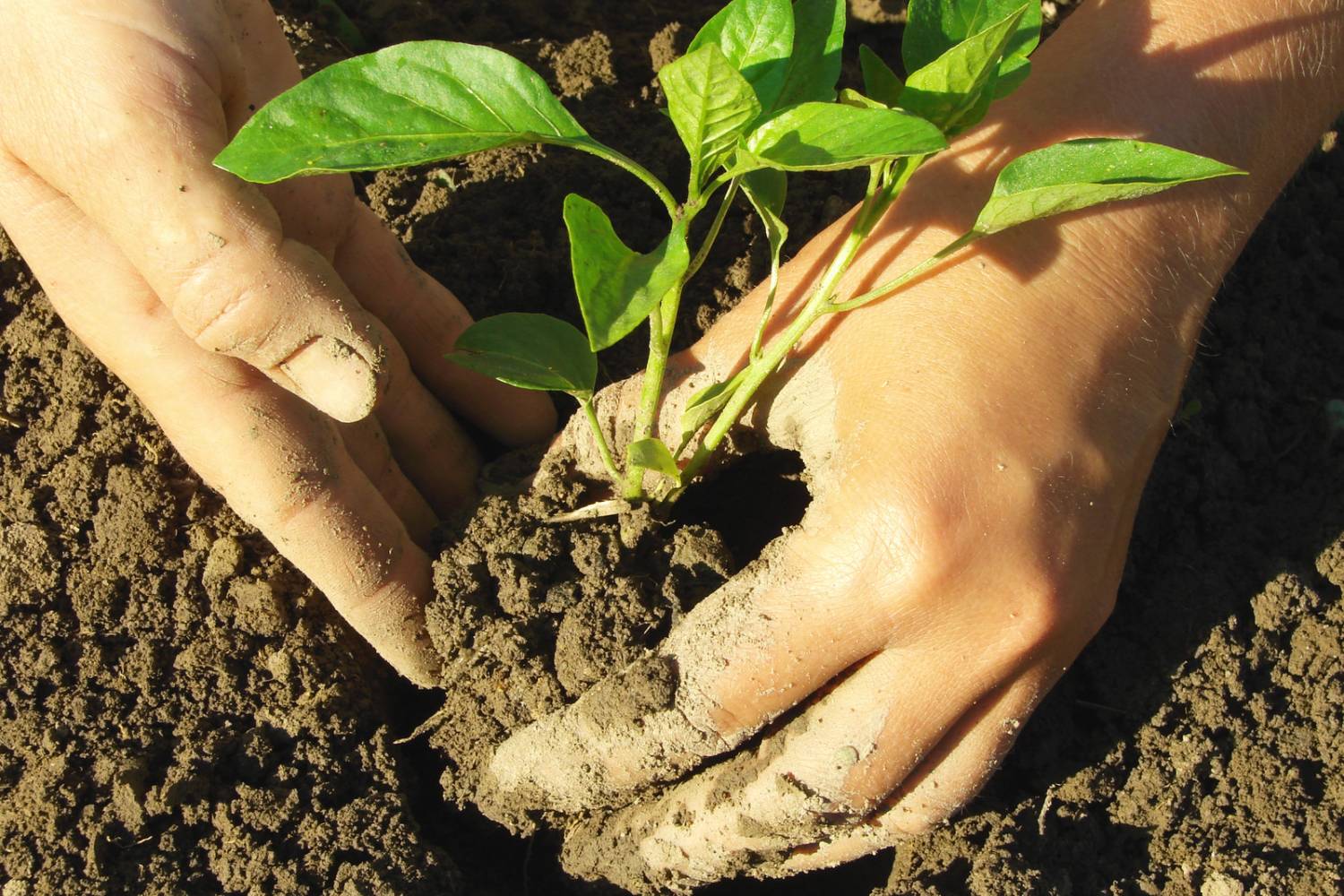Picking the Best Fertilizers for Peppers: Professional Recommendations
Picking the Best Fertilizers for Peppers: Professional Recommendations
Blog Article
The Ultimate Guide to Fertilizing Peppers: Enhancing Development and Flavor Normally
As pepper lovers seek to cultivate durable plants generating savory fruits, the function of fertilization becomes paramount in attaining these objectives. By discovering the benefits of all-natural plant foods, unlocking the secrets behind pepper plant nutrient needs, and diving right into the world of organic fertilizer alternatives, a world of opportunities emerges for improving the vitality and flavor profile of these precious plants.
Advantages of All-natural Fertilizers
All-natural plant foods use an array of benefits that contribute to the total health and efficiency of pepper plants. By enhancing the dirt with organic matter, such as garden compost or manure, natural plant foods enhance its water retention ability and nutrient-holding abilities, producing a much more friendly atmosphere for pepper plants to thrive in.
Moreover, all-natural fertilizers support a energetic and diverse dirt microbiome, promoting useful microbial activity that aids in nutrient recycling and uptake by the plants. This microbial task can help suppress damaging microorganisms and conditions, minimizing the requirement for chemical interventions. In addition, all-natural plant foods promote long-term soil health by maintaining a balanced ecosystem underground, which consequently supports the general wellness and strength of pepper plants above ground.
Understanding Pepper Plant Nutrient Needs
Having established the benefits of natural fertilizers in boosting dirt health and advertising microbial task, the emphasis currently moves to recognizing the particular nutrient requirements crucial for optimum development and taste in pepper plants.

Comprehending the certain nutrient requirements of pepper plants is important for attaining bountiful harvests with outstanding taste. By offering the right balance of nutrients through organic plant foods or dirt amendments, farmers can make certain healthy and balanced, strenuous plants that generate savory peppers throughout the growing period.
Organic Plant Food Options for Peppers
In enhancing the development and taste of pepper plants, selecting the suitable organic plant foods is an essential factor to consider. Organic fertilizers offer a all-natural and sustainable way to nurture pepper plants without presenting harmful chemicals to the soil and setting. One prominent choice is compost, which improves the dirt with essential nutrients and boosts its structure, promoting healthy root development and overall plant growth. Furthermore, garden compost helps retain moisture in the dirt, decreasing water stress and anxiety on pepper plants throughout warm weather condition.
An additional effective natural fertilizer for peppers is aged manure. Rich in nitrogen, phosphorus, and potassium, aged manure gives a balanced over at this website nutrient mix that supports energetic development and bountiful fruit manufacturing (best fertilizers for peppers). It is vital to make use of well-aged manure to prevent melting the plants with excess ammonia
Fish solution is a fast-acting natural fertilizer that supplies pepper plants with a fast boost of nutrients. Stemmed from fish waste, this fertilizer is high in nitrogen, making it specifically helpful throughout the very early stages of pepper plant growth. Fish solution is easy to apply and is readily absorbed by the plants, advertising healthy vegetation and solid origin growth.
When picking an organic plant food for peppers, take into consideration the details nutrient requirements of your plants and decide for alternatives that line up with your horticulture methods and values.
Finest Practices for Feeding Pepper Plants
Taking into consideration the significance of selecting suitable natural plant foods for pepper plants, implementing best methods for fertilization is necessary to make certain optimal development and flavor growth. It is additionally essential to fertilize pepper plants at the right time, usually before planting and throughout crucial development stages such as flowering and fruit growth.
An additional essential technique is to avoid over-fertilization, as this can result in nutrition discrepancies, stunted development, or perhaps plant damage (best fertilizers for peppers). Complying with suggested dose instructions and not surpassing them is vital for the general wellness of the pepper our website plants. In addition, integrating raw material into the dirt via compost or mulching can help boost soil framework, water retention, and vitamins and mineral availability, promoting healthier pepper plants with boosted taste profiles. By sticking to these ideal practices, you can efficiently nurture your pepper plants and achieve bountiful harvests with superior preference and top quality.
Troubleshooting Common Fertilization Issues

pH imbalance is one more issue that can influence nutrient uptake in pepper plants. When the dirt pH is expensive or as well reduced, specific nutrients end up being unavailable to the plants. Consistently evaluating the dirt pH and making changes using natural amendments can aid keep a suitable pH degree for optimal plant growth. Lastly, inconsistent fertilizing techniques can bring about irregular development and fruit advancement. Establishing a normal fertilization routine and following recommended application rates can assist prevent this problem and make sure healthy and balanced pepper plants throughout the growing period.
Conclusion
By understanding the nutrient requirements of pepper plants and choosing natural plant food options, gardeners can successfully promote healthy and balanced and strenuous development. Following ideal methods for fertilizing pepper plants and fixing typical fertilizing concerns can assist make certain effective growing of peppers.
By checking out the benefits of natural plant foods, unlocking the secrets behind pepper plant nutrient needs, and diving into the realm of natural plant food choices, a world of possibilities arises for enhancing the vitality and flavor account of these beloved plants.Fish solution is a fast-acting organic fertilizer that supplies pepper plants with a quick boost of nutrients. It is likewise crucial to feed pepper plants at the ideal time, typically before planting and throughout essential growth phases such as flowering and fruit advancement.
By comprehending the nutrient requirements of pepper plants and choosing natural fertilizer options, garden enthusiasts can successfully advertise vigorous and healthy development. Complying with ideal practices for feeding pepper plants and troubleshooting usual fertilizing concerns can aid make sure successful farming go to website of peppers.
Report this page